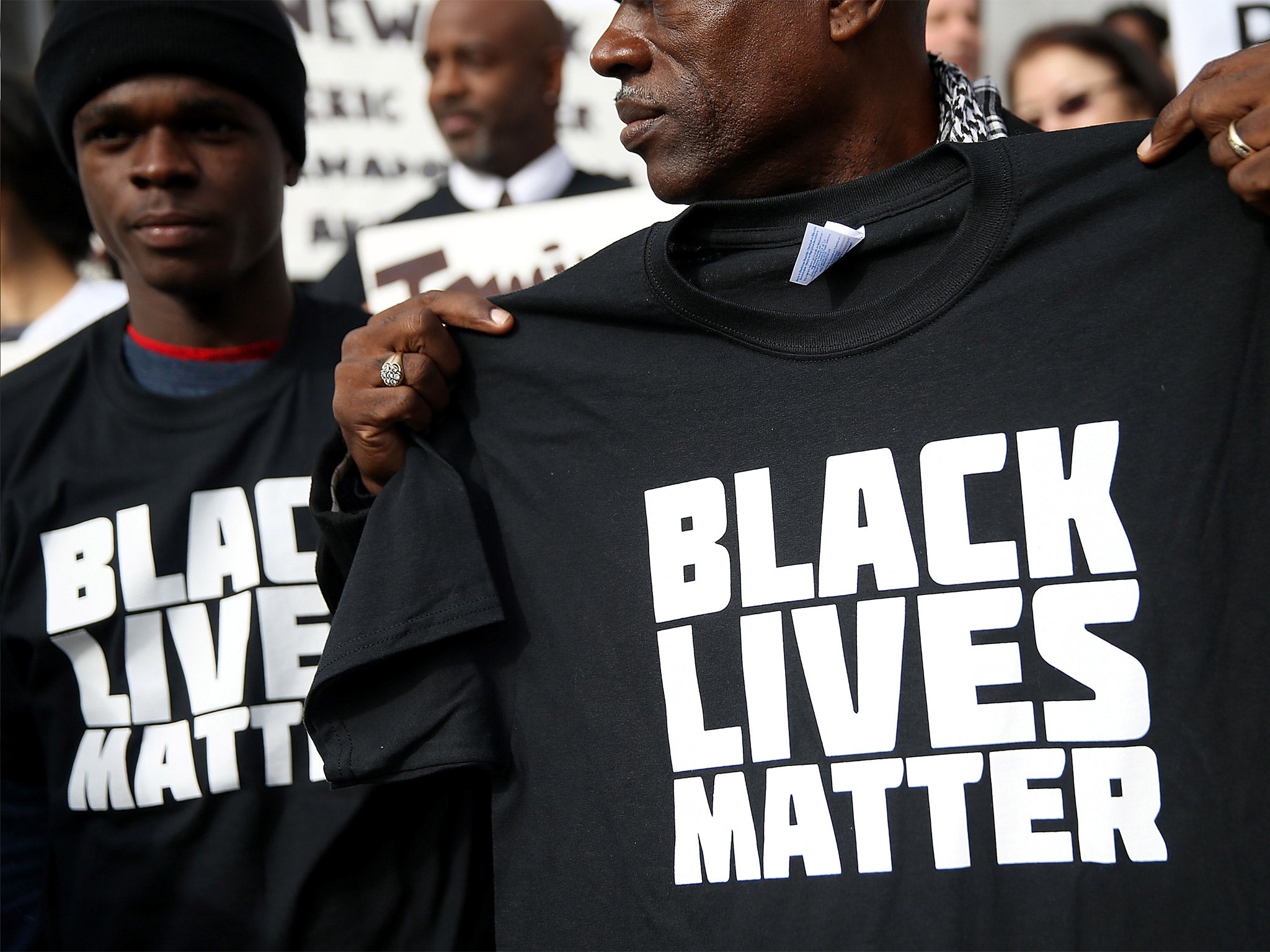The one video that shows how racism is real in the US
If you have any doubts about whether racism still exists in the US, this 3-minute video from Brave New Films might clear them up

Your support helps us to tell the story
From reproductive rights to climate change to Big Tech, The Independent is on the ground when the story is developing. Whether it's investigating the financials of Elon Musk's pro-Trump PAC or producing our latest documentary, 'The A Word', which shines a light on the American women fighting for reproductive rights, we know how important it is to parse out the facts from the messaging.
At such a critical moment in US history, we need reporters on the ground. Your donation allows us to keep sending journalists to speak to both sides of the story.
The Independent is trusted by Americans across the entire political spectrum. And unlike many other quality news outlets, we choose not to lock Americans out of our reporting and analysis with paywalls. We believe quality journalism should be available to everyone, paid for by those who can afford it.
Your support makes all the difference.Racism is still very much an issue in this country, one that pervades many aspects of life. But not everyone in America fully appreciates that fact. As many studies show, white Americans are often cut off from the realities of racism, living within homogeneous social networks and communities.
But if you have any doubts about whether racism still exists in America, this 3-minute video from Brave New Films, a California-based company that makes films to spur political activism, might clear them up. The video counts down eight reasons that racism is still very real in America, using research from Yale University, the American Civil Liberties Union and the New England Journal of Medicine, among others.
Those reasons are listed below, with links to the research cited.
1. Black sounding names are 50 percent less likely to be called back by those reviewing job applications. In a 2002 study, Marianne Bertrand and Sendhil Mullainathan of the University of Chicago mailed thousands of job applications to reviewers that were identical except for the names. They found that applications with white-sounding names like Emily and Brendan were much more likely to be answered than identical resumes from black-sounding names like Lakisha and Jamal.
2. Black people are charged roughly $700 more when buying cars. A study by Ian Ayres and Peter Siegelman of Yale Law School found that dealers quoted lower prices to white men than blacks and women, even though all buyers used an identical script for negotiating.
3. Black drivers are twice as likely to get pulled over. Numerous studies -- including this 1999 study by the ACLU and an analysis of FBI records by USA Today last year -- show a significant racial gap in police stops and arrests.
4. Black clients are shown 17.7 percent fewer houses for sale. A 2012 study of housing discrimination by the Federal Department of Housing and Urban Development found that black homebuyers who contacted agents about recently advertised homes for sale learned about 17 percent fewer available homes than equally qualified whites and were shown 17.7 percent fewer homes. Asian homebuyers learned about 15.5 percent fewer available homes and were shown 18.8 percent fewer homes.
5. Black people are much more likely to be arrested for marijuana use. A 2013 study by the ACLU showed that, while marijuana use rates are equal among blacks and whites, black people are 3.7 times more likely to be arrested for it.
6. Black people are incarcerated at nearly six times the rate of white people. A 2007 study by Marc Mauer and Ryan King of the Sentencing Project document the incredible incarceration rates of young black men. "If current trends continue, one in three black males born today can expect to spent time in prison during his lifetime," they wrote.
7. Doctors did not inform black patients as often as white ones about an important heart procedure. In a 1999 study for The New England Journal of Medicine, researchers investigated a long-standing difference in the use of cardiovascular procedures according to the race and sex of the patient. They found that women and blacks were less likely to be referred for cardiac catheterization than men and whites, respectively, and that black women were much less likely to be referred than white men.
8. White legislators did not respond as frequently to constituents with black-sounding names. In a 2011 study, Daniel Butler and David Broockman of Yale University found that state legislators were less likely to respond to requests for help with registering to vote when the sender had a putatively black name than a white one. Legislators of both parties exhibited similar levels of discrimination against constituents with "black names." However, the study also found that minority legislators did the opposite, responding more frequently to those with black names.
Copyright: Washington Post
Join our commenting forum
Join thought-provoking conversations, follow other Independent readers and see their replies
Comments